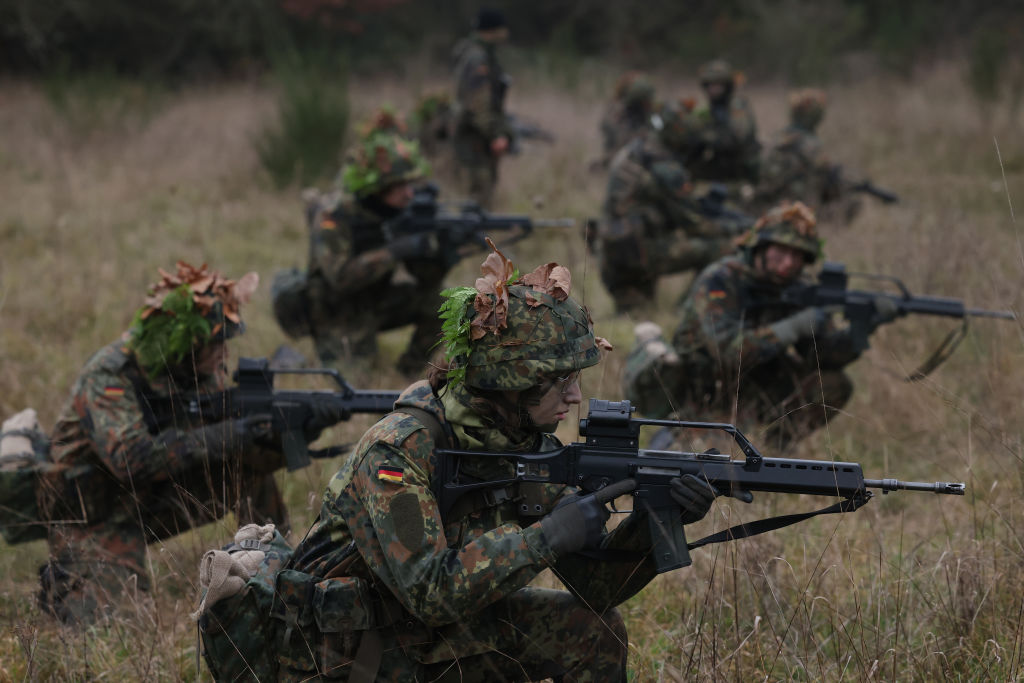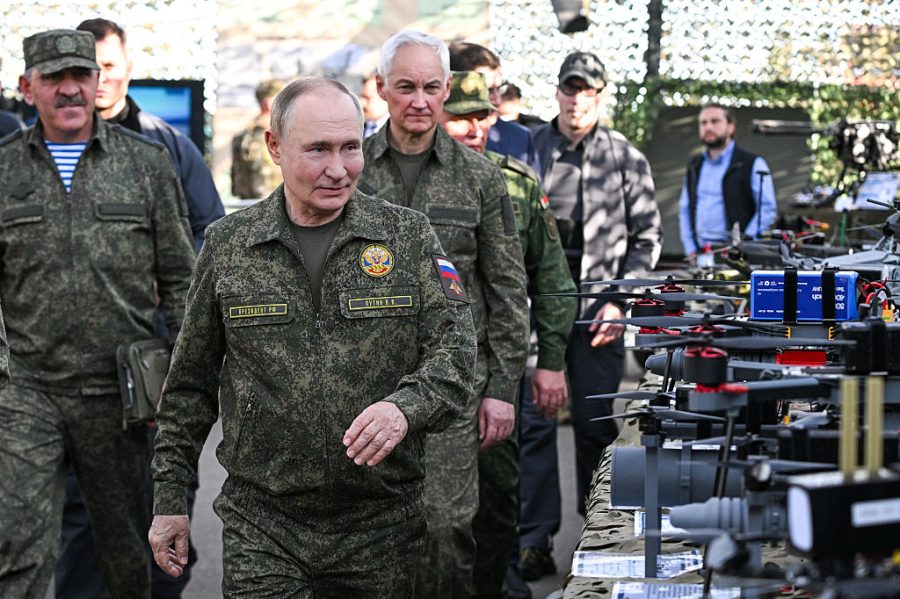On 27 February 2022, three days after the beginning of the Russian invasion of Ukraine, the German Chancellor Olaf Scholz said it was a historic turning point, or Zeitenwende, for European security.
Scholz promised to transform German foreign and defence policy, and substantially modernise and rearm Germany’s armed forces, the Bundeswehr. A key element of the Zeitenwende was the creation of a €100 billion special fund for an immediate increase in defence spending, as well as the promise to meet Nato’s target of spending 2 per cent target of GDP on defence by 2024.
Two years on, with the dawn of the second Trump administration, it seems that Zeitenwende was only the beginning for Germany’s armed forces.
In a series of public statements the President, along with his Defense Secretary Pete Hegseth and Vice President J.D. Vance, have called into question the entire European security order since the second world war. In response, Friedrich Merz, the winner of the parliamentary elections in Germany this weekend and designated Chancellor, declared live on national television that strengthening European defence would be his utmost strategic priority, not just as a safeguard from Russia, but also to achieve independence from the United States. According to Merz, the current US administration simply does not care about European security. It is hard to argue with that.
President Trump and his administration have indicated that the US will not only end the Ukraine war by making territorial concessions to Russia, but that Europe will have to take responsibility for its own security afterwards. On Nato, the message from Washington is clear. Europeans will have to spend more on defence, a lot more. The 2 per cent target, which Nato agreed on in 2014 in response to the Russian annexation of Crimea, and which Germany reached for the first time in 2024, already seems like a relic from a bygone era. The recent announcement by Keir Starmer that he is raising British defence expenditures to 2.5 per cent of GDP by 2027 shows the direction of travel for Nato members.
In Germany, the €100 billion investment fund inaugurated by Scholz will run out by 2027. To increase defence expenditure above 2 per cent will require massive sums that cannot be made up by simply reorganising existing budgets. Twenty years of structural underfunding have cut as much as €500 billion from German defence budgets because of the post-Cold War ‘peace dividend’. All Nato countries cut back the size of their armed forces after the collapse of the Soviet Union, but the loss of combat strength for the Bundeswehr is dramatic.
For example, artillery has been reduced by 96 per cent compared to Cold War levels. Other capabilities, such as short-range air defence systems, were eliminated completely. According to one 2024 report by the Kiel Institute, in 1992, the Bundeswehr still had over 4,000 modern Leopard 1 and Leopard 2 main battle tanks (MBTs), with 2,400 MBTs remaining in 2004. This number had dwindled to 339 Leopard 2 tanks by 2021.
It’s a similar picture for infantry fighting vehicles (which went from 2,122 in 2004 to 674 in 2021) and combat aircraft (from 423 in 2004 to 221 in 2021). There has been a dramatic decline in Germany’s conventional combat power over the last 20 years.
Artillery has been reduced by 96 per cent compared to Cold War levels
The only realistic option to reverse this malaise and to rearm the Bundeswehr, while allowing Germany to continue to support Ukraine financially and militarily, is massive increases in defence spending via additional borrowing. This, however, puts Merz in a bind. Germany’s constitutional debt break puts severe limits on deficit spending.
A second special fund for the Bundeswehr, this time likely to be €200 billion (or 5 per cent of German GDP) requires a two-thirds majority in the German parliament to amend the constitution. After last Sunday’s election, the nationalist populist AfD and the far-left Die Linke have enough votes to block this in the Bundestag.
There is an escape hatch for Merz. The CDU/CSU, SPD, Greens and the FDP together have a two-thirds majority to amend the constitution. Merz has already indicated that he will try to do this in the next 30 days, before the new Bundestag constitutes itself.
Overcoming these considerable political hurdles and making good on his promise to strengthen Europe’s defences will be the first test for the incoming Chancellor. Time is ticking for Zeitenwende 2.0.







Comments